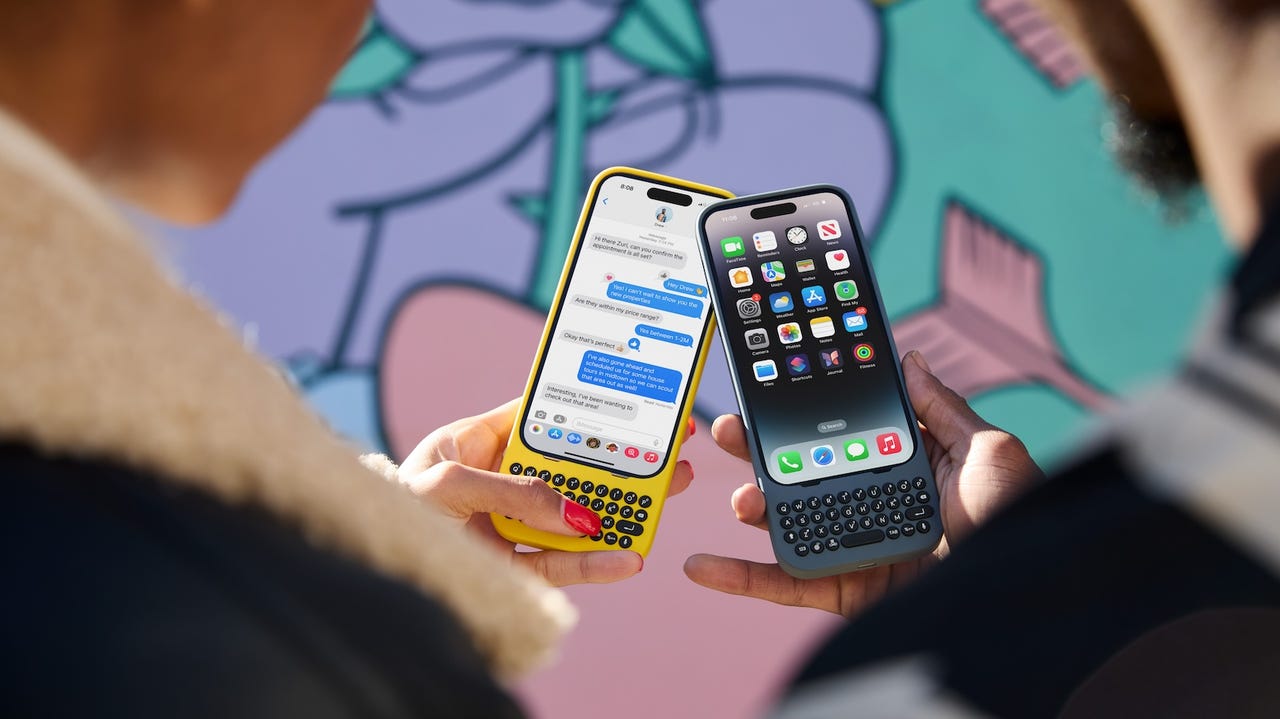'ZDNET Recommends': What exactly does it mean?
ZDNET's recommendations are based on many hours of testing, research, and comparison shopping. We gather data from the best available sources, including vendor and retailer listings as well as other relevant and independent reviews sites. And we pore over customer reviews to find out what matters to real people who already own and use the products and services we’re assessing.
When you click through from our site to a retailer and buy a product or service, we may earn affiliate commissions. This helps support our work, but does not affect what we cover or how, and it does not affect the price you pay. Neither ZDNET nor the author are compensated for these independent reviews. Indeed, we follow strict guidelines that ensure our editorial content is never influenced by advertisers.
ZDNET's editorial team writes on behalf of you, our reader. Our goal is to deliver the most accurate information and the most knowledgeable advice possible in order to help you make smarter buying decisions on tech gear and a wide array of products and services. Our editors thoroughly review and fact-check every article to ensure that our content meets the highest standards. If we have made an error or published misleading information, we will correct or clarify the article. If you see inaccuracies in our content, please report the mistake via this form.
This iPhone keyboard case turns it into the BlackBerry it once conquered


Since I've been using mobile technology since 1997, I've been fortunate enough to live through the glory days of physical QWERTY keyboards on BlackBerry, HTC, Nokia, and other devices. Of course, such tactile gadgets are rare these days.
Also: CES 2024: What's Next in Tech
That's why the Clicks keyboard for iPhone exists, created in part by UK-based Clicks Technology and two industry veterans who are very familiar with using physical keyboards, Michael Fisher (aka Mr. Mobile) and Kevin Michaluk (aka CrackBerry Kevin). The attachable case accessory provides iPhone users with a full physical keyboard -- addictive tactile feedback included -- without consuming any of the device's screen real estate.
It's launching today, with preorders now available, and general sales beginning on February 1.
I tried out a similar keyboard in 2017 on my Samsung Galaxy S8 Plus, but there are a few reasons that I am much more excited to try out the new Clicks for iPhone keyboard. For one, the Samsung keyboard I tested, and past BlackBerry and Nokia keyboards, suffered from limited display sizes. With the Clicks keyboard, it attaches to the bottom of your iPhone so the full display is available for your apps and content. In addition, a backlight is present for use in low-light conditions.
Also: How BlackBerry lost the smartphone war to Apple and Google
Something BlackBerry did well was keyboard shortcuts, and thanks to Apple's native support, the Clicks for iPhone keyboard also supports iOS keyboard shortcuts. Given that I can barely stand the default iPhone keyboard, I look forward to seeing if a physical keyboard like this can improve my typing experience.
The Clicks keyboard connects via lightning or USB-C, while also allowing users to charge their iPhone like they normally would through an extension port on the bottom of the case. This eliminates the need for a Bluetooth connection and makes the pairing experience much more seamless for users.
The Clicks for iPhone retails for $139 and comes with a Clicks app that brings new functionality to the keyboard with future updates. The keyboard is available in BumbleBee (black and yellow) and London Sky (gray), with more colors in the future.
As I mentioned, both Michael and Kevin come with many years of using physical keyboards on smartphones, with Kevin practically running a website that spawned from the original Blackberry. So, if you were going to design the perfect keyboard accessory, these are easily the two people who can get it right. I've used some decent and some terrible keyboards in the past, so here's to hoping for the best when I get to check out the accessory at CES next week.